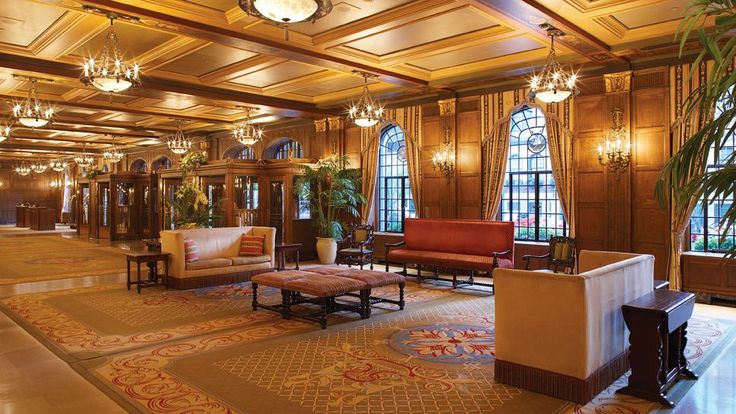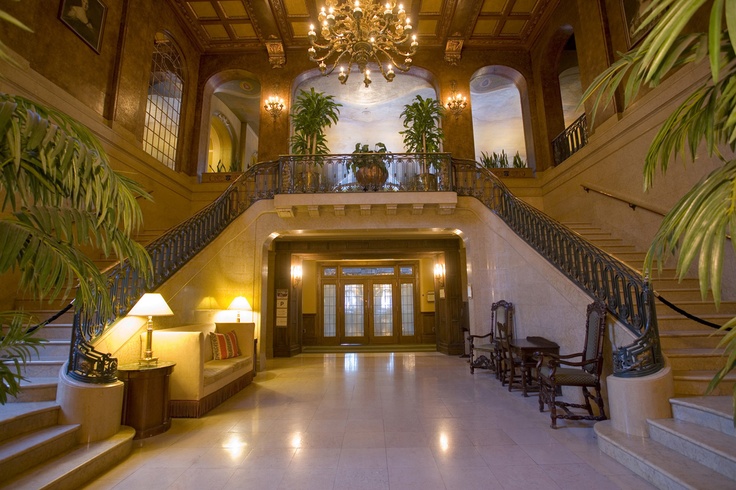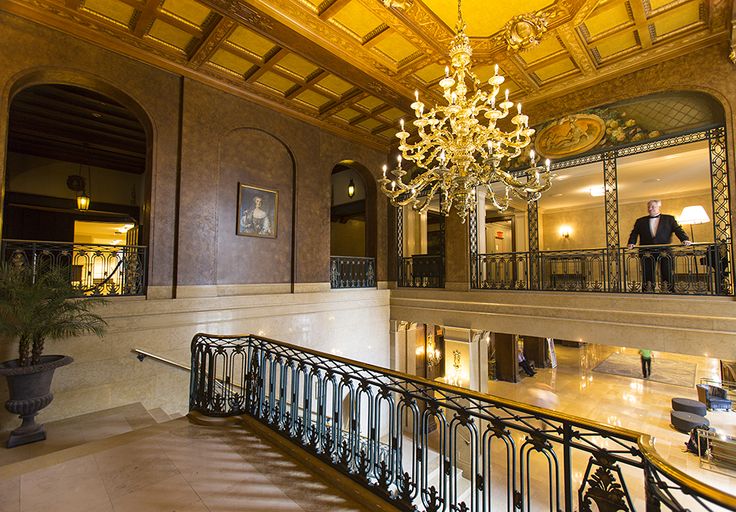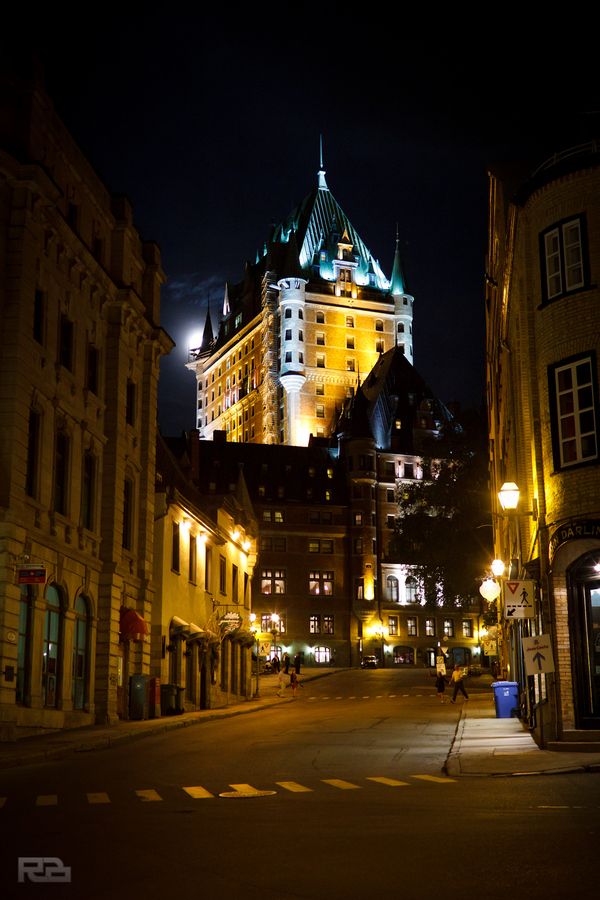Fairmont Le Château Frontenac: Difference between revisions
| Line 18: | Line 18: | ||
<br> | <br> | ||
<br> | <br> | ||
[[]] | [[File:Fairmont Le Château Frontenac upper stairway.jpg]] | ||
<br> | <br> | ||
<br> | <br> | ||
Revision as of 17:37, 11 July 2015
Introduction

The Château Frontenac is a grand hotel in Quebec City, which is operated as Fairmont Le Château Frontenac. Château Frontenac is situated at an elevation of 54 m (177 ft). It was designated a National Historic Site of Canada in 1980. Prior to the building of the hotel, the site was occupied by the Château Haldimand, residence of the British colonial governors of Lower Canada and Quebec. The hotel is generally recognized as the most photographed hotel in the world, largely for its prominence in the skyline of Quebec City.
History

The Château Frontenac was designed by American architect Bruce Price, as one of a series of "château" style hotels built for the Canadian Pacific Railway company (CPR) during the late 19th and early 20th centuries; the newer portions of the hotel—including the central tower (1924)— were designed by Canadian architect William Sutherland Maxwell. CPR's policy was to promote luxury tourism by appealing to wealthy travelers. The Château Frontenac opened in 1893, six years after the Banff Springs Hotel, which was owned by the same company and is similar in style. Another reason for the construction of the Château Frontenac was to accommodate tourists for the 1893 Chicago World's Fair; however, the hotel was not finished in time.
The Château Frontenac was named after Louis de Buade, Count of Frontenac, who was governor of the colony of New France from 1672 to 1682 and 1689 to 1698. The Château was built near the historic Citadelle, the construction of which Frontenac had begun at the end of the 17th century. The Quebec Conference of 1943, at which Winston Churchill, Franklin D. Roosevelt, and William Lyon Mackenzie King discussed strategy for World War II, was held at the Château Frontenac while much of the staff stayed nearby at the Citadel.

Although several of Quebec City's buildings are taller, the landmark hotel is perched atop a tall cape overlooking the Saint Lawrence River, affording a spectacular view for several kilometers. The building is the most prominent feature of the Quebec City skyline as seen from across the Saint Lawrence.
The World War II Allies' Quebec Conferences of 1943 and 1944 were held at the Château.
In 1953, this hotel was used as the filming location for Alfred Hitchcock's film "I Confess," featuring Montgomery Clift and Anne Baxter.
[[]]
In 2001, the hotel was sold to Legacy REIT, which is partially owned by Fairmont, for $185 million. When Canadian Pacific Hotels was renamed Fairmont Hotels and Resorts in 2001, the hotel became Fairmont Le Château Frontenac.
In 2011, the hotel was sold to Ivanhoé Cambridge, and work began on replacement of the main tower's copper roof, at the cost of $7.5 million. An image of the roof was printed on polypropylene safety netting and hung from scaffolding to hide the refurbishing project from view.
Legacy
[[]]
On June 14, 1993, Canada Post issued 'Le Château Frontenac, Québec' designed by Kosta Tsetsekas, based on illustrations by Heather Price. The stamp features an image of the Château Frontenac, which was designed by architect Bruce Price in 1893. The 43¢ stamps are perforated 13.5 and were printed by Ashton-Potter Limited.
Websites
[[]]
